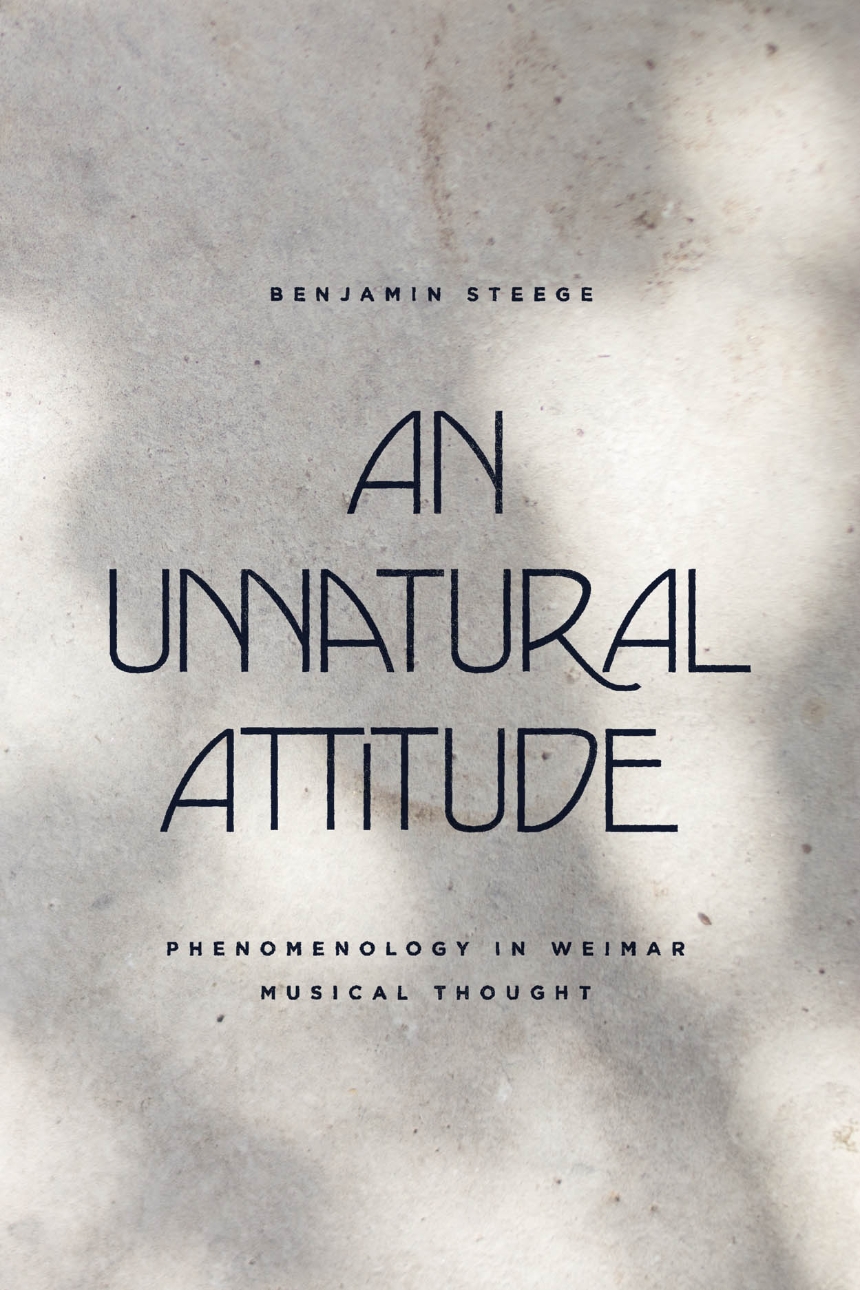An Unnatural Attitude
Phenomenology in Weimar Musical Thought
An Unnatural Attitude traces a style of musical thought that coalesced in the intellectual milieu of the Weimar Republic—a phenomenological style that sought to renew contact with music as a worldly circumstance. Deeply critical of the influence of naturalism in aesthetics and ethics, proponents of this new style argued for the description of music as something accessible neither through introspection nor through experimental research, but rather in an attitude of outward, open orientation toward the world. With this approach, music acquires meaning in particular when the act of listening is understood to be shared with others.
Benjamin Steege interprets this discourse as the response of a young, post–World War I generation amid a virtually uninterrupted experience of war, actual or imminent—a cohort for whom disenchantment with scientific achievement was to be answered by reasserting the value of imaginative thought. Steege draws on a wide range of published and unpublished texts from music theory, pedagogy, criticism, and philosophy of music, some of which appear for the first time in English translation in the book’s appendixes. An Unnatural Attitude considers the question: What are we thinking about when we think about music in non-naturalistic terms?
312 pages | 20 line drawings | 6 x 9 | © 2021
New Material Histories of Music
History: History of Ideas
Music: General Music
Philosophy: Aesthetics
Reviews
Table of Contents
Introduction Worldhood and World War
Max Scheler, “Genius of War”
Musicology in the World
From Psychology to Phenomenology
Music in Phenomenological Study
Chapter 1 The Unnatural Attitude
The Acoustical Attitude and the Harmonic Attitude
Beyond Psychologism
“What Is the Phenomenology of Music?”
Chapter 2 Debussy, Outward and Open
An Outward Turn
Dehumanization
Being-There-With Music
Letting Oneself Go
Actuality
Chapter 3 Hearing-With
Case One Aesthetic Hearing (Seventeenth-Century Suite)
Vocal Hearing and Instrumental Hearing
Case Two Participatory Hearing (Thirteenth-Century Motet)
Spacing
The Limits of Community
Chapter 4 Techniques of Feeling
Techniques of Feeling
A Call
Appendix A Hans Mersmann, “On the Phenomenology of Music” (1925)
Appendix B Helmuth Plessner, “Response [to Mersmann]” (1925)
Appendix C Paul Bekker, “What Is the Phenomenology of Music?” (1925)
Appendix D Herbert Eimert, “On the Phenomenology of Music” (1926)
Appendix E Günther Stern-Anders, “On the Phenomenology of Listening (Elucidated through the Hearing of Impressionist Music)” (1927)
Acknowledgments
Notes
Bibliography
Index
